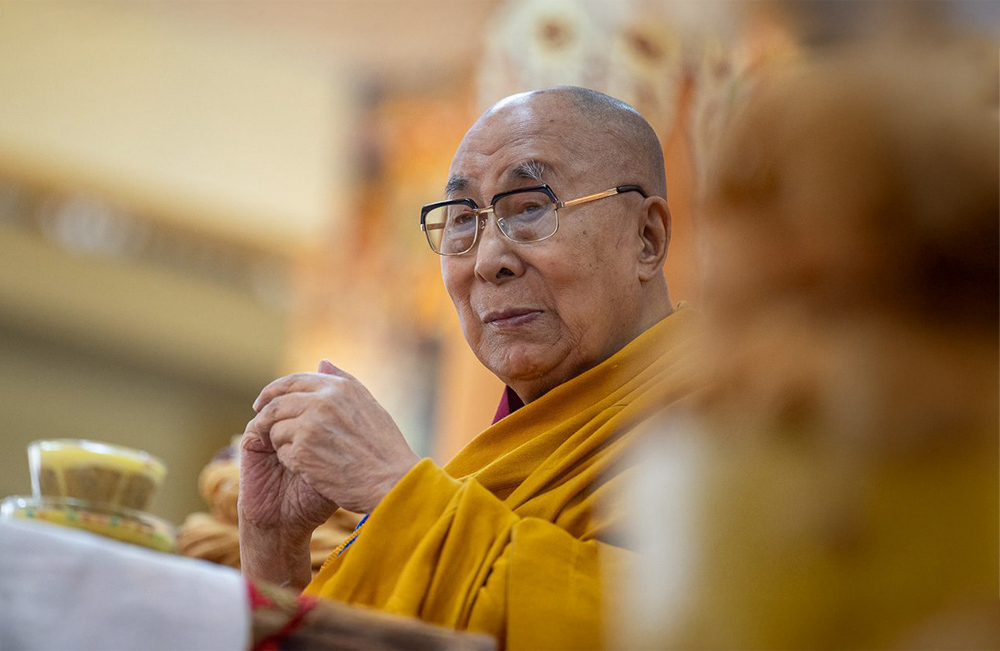This world can be crueler than cruel, can tear out your heart and crush it without mercy.
And religious beliefs are supposed to help us get through so much heartache and heartbreak, so much despair, so much tragedy, so much loss of life.
Doctrines of The Church of Jesus Christ of Latter-day Saints and other Christian faiths point to life after this life, that there’s a better place in store for those who weather the storm here, whatever that means. My mind went to that teaching with the news of the horrific floods in Texas, taking scores of lives, including young girls at a summer camp.
Good Lord, what’s the purpose of such happenings, such tribulation, such sadness?
That question has been asked and attempted to be answered a trillion times before by people looking for a way to survive the hurt, and by learned faith leaders and deep-thinking philosophers.
I won’t repeat, word for word, any of those thoughts here. I’ll just feel a mere fraction of the pain those families in Texas feel as they grieve. Also, so many others, tens of thousands who are tossed into a state of mourning every day. And I’ll ask you: How do you handle that sort of aching?
Latter-day Saint belief teaches that Jesus Christ died to wipe away everybody’s sin and to make it possible for all humans to go on living in some existence somewhere, regardless of how they die. Those are gifts, it is said, of his resurrection and his Atonement.
Is Christian faith in that enough to relieve the suffering and agony of those left behind? In theory, maybe it is. How many times have you been to a funeral where the speakers talk of a happy eternal reunion, either immediately between the departed and those who have gone before or one day, some day, between the departed and those who yet remain in this condition here?
Hope for that is what helps believers get by.
The big question: Why?
Nonbelievers think that hope is bogus, just the wishful and wistful thinking put up by weak people looking for some irrational reason to hang on.
But belief is good.
I’ve lost loved ones who have gone wherever death takes them, through natural causes and via accident and tragedy that is so difficult to absorb and accept. A 14-year-old nephew who drowned on a youth canoe trip, who also happened to be a trained lifeguard, but a submerged log knocked him overboard, causing him to hit his head on an underwater rock, the current trapping him beneath the rapid.
When my sister stood by his lifeless body, weeping as she looked upon him for the last time as they closed the casket, her eyes red not just from this farewell but also from an auto accident she came upon as she drove to her son’s services, a two-car wreck that left a mother dead, with her two small uninjured children screaming and crying in terror at the sight of it all. My sister, so full of her own grief, held those young girls, trying to comfort them in their moment of anguish.
That’s a true story, one that only seems fictional because of its unimaginable harshness.
Why does God let something like that happen?
A question that’s now been asked a trillion and one times.
Families of all kinds in all corners of the globe have suffered the loss of kin by way of war or accidents or natural disasters or disease or corrupt governments or human frailty. It’s all in the mix, and it’s difficult to handle, sometimes the most difficult thing.
Whether it’s weakness or just plain unbending belief or maybe both that allows humans to reach for small bits of comfort from heaven when they need it most, it matters not one iota. Comfort is there for the taking for those who manage to grasp it. The same God, if your faith rolls that way, that created circumstances that allow for such grief is the same God who offers hope.
Goodbyes are never forever
It’s the best religion can do. Yield solace and light for those who mourn in darkness. That darkness may never fully abate, but it can edge away in time, in the assurance of Jesus’ brightness. Other faiths find their hope in other forms. But for me, a person who hates saying goodbye, even when grown kids simply return from visiting my home here to their houses in Portland and San Francisco, or even in North Salt Lake and Utah County, I embrace the optimism found in my faith that goodbyes are never forever.
I know, that sounds cheesy. But not when caskets are closed on a nephew and a mother and a father and a sister and a friend and another friend and another … or when grim news comes about children caught in flash floods in Texas … or innocents killed in foreign wars … or individuals taken by disease or accidents…
We’re all going to die. The young, the middle-aged, the elderly. Sometimes there’s warning, sometimes there’s none. But my faith helps me deal with that bit of reality. Maybe yours does, too. If you have no faith, may God help heal you any which way possible. Either way, I don’t see my kind of belief as a weakness, as a crutch invented in my mind to soothe my soul.
I see it, rather, as truth, as a blessing that lends strength when the world is crueler than cruel, when it tears out your heart and crushes it without mercy.
(Francisco Kjolseth | The Salt Lake Tribune) Tribune columnist Gordon Monson.

